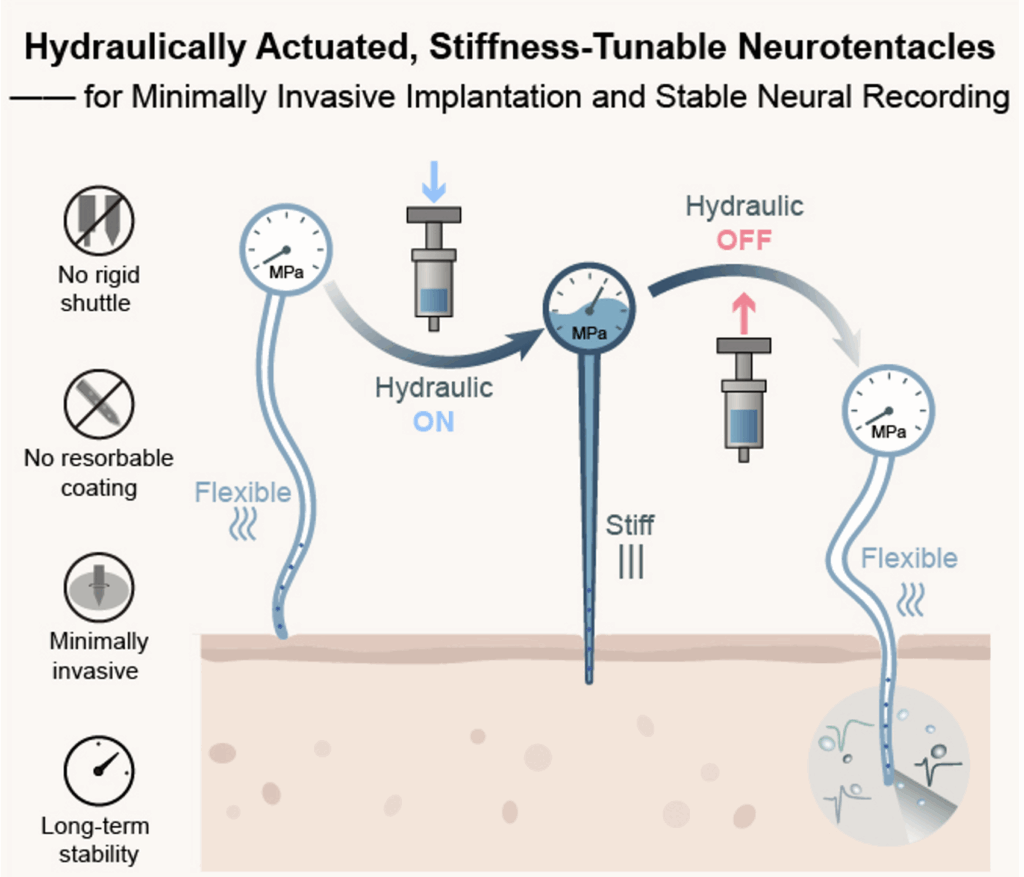https://advanced.onlinelibrary.wiley.com/doi/10.1002/advs.202505100
https://www.cas.cn/syky/202508/t20250812_5079471.shtml
Flexible neural electrodes, with their excellent biocompatibility and mechanical compatibility, are considered by researchers to be an ideal choice for long-term and stable neural signal acquisition. Compared to traditional rigid electrodes, flexible probes can effectively reduce brain tissue damage, inhibit inflammatory responses, and prolong in vivo lifespan. However, due to their inherent low stiffness, these probes struggle to penetrate brain tissue without additional support. Therefore, implantation difficulties have become a key bottleneck hindering the widespread application of flexible electrodes.
To address this issue, a team at the CAS Institute of Semiconductors and the CAS the Institute of Psychology has developed a “neural tentacle” neural probe with adjustable stiffness and flexibility. Using a micro-hydraulic system to regulate internal pressure, the probe becomes rigid during insertion, enabling precise brain penetration. After implantation, it returns to a soft state to adapt to the brain’s microenvironment. This solution achieves the dual goals of minimally invasive implantation and long-term, high-quality neural signal recording without the need for rigid insertion tools. Experiments have confirmed that compared to traditional methods, this technology significantly reduces acute injury by over 74% and alleviates chronic immune responses by approximately 40%. Furthermore, it consistently maintains excellent neuronal signal quality and signal-to-noise ratio during long-term in vivo recordings in mice, with both signal channel functionality and unit number significantly superior to the control group.

